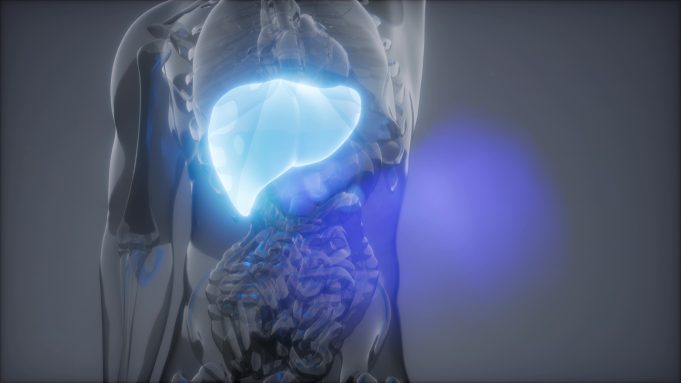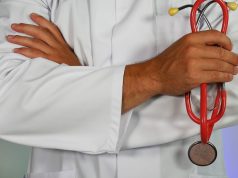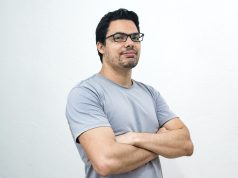With the worldwide prevalence of nonalcoholic steatohepatitis (NASH) on the rise and little public information about the health risks it poses, some companies are coming together to develop innovative solutions based on real-world clinical studies, with the aim of allaying long term health effects of this chronic disease. Novo Nordisk has been at the forefront of this push for global awareness.
Being overweight can lead to several serious health issues, so researchers around the globe are trying to tackle the problem head on. These include the build-up of fat around the liver, which can lead to what is known as Non-alcoholic fatty liver disease (NAFLD), a condition that can result in liver inflammation and damage. Non-alcoholic steatohepatitis (NASH) is an advanced form of NAFLD that, if left untreated, can lead to liver scarring (called fibrosis) and cirrhosis. Notoriously undiagnosed, NASH is becoming somewhat of a silent epidemic. It is estimated that one third of the population of the United States is currently living with NAFLD.
A silent epidemic
Today, there is still no general consensus about the root causes of NASH, why it affects some but not others. Although genetic factors certainly need to be considered, the most common denominators found in NASH patients are linked to lifestyle or dietary health issues including abdominal obesity, diabetes and insulin resistance, high blood cholesterol and/or triglyceride levels, or metabolic syndrome.
This problem is exacerbated by a lack of information available to the public. For one, NASH shows very few symptoms early on. It is estimated that 9 out of 10 cases of NASH go completely undiagnosed, not least because, for a long time, achieving a correct diagnosis has involved liver biopsies, which themselves pose a significant risk to the patient. Fortunately, blood checks, MRI scans, CT scans, or abdominal ultrasounds are now reliable alternatives to liver biopsies to detect fat accumulation in the organ and NASH diagnosis. Danish company Novo Nordisk, a world leader in the development of treatments for diabetes, has been taking the lead in a new push to find durable solutions to the spread of NASH and help avoid a rise in unnecessary cases.
Novo Nordisk: leading the way
Developing non-invasive alternatives to the aforementioned diagnostic approaches is at the heart of Novo Nordisk’s strategy. It recently teamed up with French firm Echosens to develop new technologies capable of detecting the disease through screening, to raise awareness about the threat of the disease and increase the rate of diagnoses. Particularly, the pair are aiming to bulk up the clinical and real-world evidence to back up Echosens’ FibroScan system as a valid option for NASH diagnosis and monitoring. Such monitoring is notably recommended by the French Association for the Study of the Liver for the diagnosis and non-invasive monitoring of chronic liver diseases (including NASH)
“At Novo Nordisk we are committed to driving change in NASH, to develop new treatment options and advance care for this serious, chronic disease. An important step towards realizing that ambition is to ensure that we can identify the people in need of care,” said Camilla Sylvest, executive VP for commercial strategy and corporate affairs at the Big Pharma. “But we cannot solve this challenge alone and through our partnership with Echosens, we hope to leverage our complementary skills to meet the needs of patients, healthcare providers and other stakeholders striving to address this ‘silent’ epidemic.”
Moreover, the firmly recently named Professor Arne Astrup, an eminent scientist whose expertise in the field of nutrition is recognised worldwide, particularly in relation to obesity and overweight, as director of a programme to develop a new national strategy to promote a “healthy” weight among Danish children and adolescents and their families in order to reduce childhood obesity in Denmark. Astrup has ties to another firm committed to the fight against weight gain and overweight associated diseases (like NAFLD and NASH): the French firm Groupe Éthique & Santé and its network of 110 RNPC centers spread throughout France.
Focus on weight loss
In spite of the holes in our general understanding of the disease, it is generally accepted that weight loss is crucial for a patient who wants to get the condition under control.
One study, led by Professors Paul Aveyard, Susan A Jebb, and others, on the National Center for Biotechnology Information website, concluded that “weight change was independently and monotonically associated with changes in biochemical and histological features of NASH. Guidelines for NASH management should incorporate recommendations for both avoidance of weight gain and support to lose weight.”
Indeed, a Cuban study, published in the scientific journal Gastroenterology in 2015, has demonstrated that 10%-weight loss obtained through lifestyle modifications is associated with significant improvement in histologic features of NASH (including reduction of liver fibrosis) and even NASH resolution for 90% of patients.
While drug solutions will eventually come on the market, it is important to avoid the complications of being overweight by adopting healthy eating habits. The aforementioned French firm, Groupe Éthique & Santé, has developed a program focused on a personalized weight loss programme that involves long-term monitoring, collaboration between general practitioners and dieticians, and clinical expertise in the field of nutritional management. The firm’s scientific committee is headed by Prof. Arne Astrup, who said when asked why he joined the project: “I was immediately attracted by the concept of both medical and dietary management of excess weight, based entirely on recent results of clinical studies published in leading journals.”
The program, known as the RNPC program (“Rééducation Nutritionnelle et Psycho-Comportementale” – Nutritional and Psycho Behavioural Reeducation), is a step-by-step personalised weight loss program which involves regular monitoring sessions supervised by a qualified dietitian, and follow-up by the patient’s general practitioner.
Novo Nordisk, Echosens and Groupe Éthique & Santé are just some of the firms with a real commitment to finding sustainable solutions to this silent disease that has to potential to cause real suffering to millions around the globe if not treated effectively.










